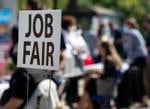Christopher Holme’s wife sends him off with two coffees almost every day. The first is for the 8 a.m. drive into downtown Columbia. The second is for his 10 or 11 p.m. drive home to Cayce.
Hampton Street Vineyard’s executive chef has been working long shifts for days on end for the last month, as his restaurant makes do with a shorthanded kitchen staff.
“It's been me and (sous chef Marco Gibson) basically pulling double shifts, picking up extra days, doing whatever it takes to keep the restaurant going,” Holme reported. “That's the job.”
Though he said he’s not the stereotypical roaring, angry executive chef, he admitted the long days have put him on edge.
“It's stressful. Absolutely. It takes a toll on your mind and on your body,” he said. “It takes a toll on your brain as well, when you get tired you get grumpy, you get sore, you try to hide that as much as you can.”
Such staffing issues stretch throughout much of Columbia's dining scene. Other restaurants have responded by reducing their open days or cutting certain meal services. Owners who regularly work in their restaurants blame unemployment pay and other factors for the shortage — despite research that suggests it has little effect on people seeking jobs.
A week ago, Holme’s kitchen hired two more workers to shore things up, so better times are ahead. But during the worst days, they had five workers filling 11 shifts that he’d ideally staff with eight to 10 people. It’s come at what should be a restorative time, too, as the restaurant has seen surges in customer activity after months of down business due to the COVID-19 pandemic.
At Five Point’s Mr. Friendly’s New Southern Cafe, cook Rachel Tisdale is meant to be heading up the restaurant’s lunch. But the inability to bring on sufficient wait staff has led them to pause that service. The restaurant has enough workers to get by for dinner right now, but doesn’t have much room for people to miss a shift, unless a worker is willing to take on a double shift.
“I have been working more doubles. I had to cover a few dishwashing shifts last week,” she said. “I don’t mind at all. I’m a team player. … I always like to say it’s good karma.”
Tisdale isn’t expecting that to change soon, but she’s hopeful and noted that the eatery plans to jumpstart its lunch service in the coming weeks.
“It sucks having to tell people, ‘Hey we’re not open yet,’” she explained. “They start to get kind of mad … but it’s something that’s kind of out of our control, you know?”
Shorthanded restaurants have been a frequent topic in the media across the U.S. National outlets and papers as far away as West Virginia, Philadelphia and Washington have noted the situation, with various thoughts as to the cause.
The obvious target is unemployment benefits, which pay a comparable wage. Multiple owners and workers mentioned it to Free Times, including all the ones interviewed for this piece. It’s become a partisan issue to an extent, with industry social media groups arguing over the industry’s notorious low pay and how the problem would be gone if pay was better.
That aspect was thrust further into the spotlight in South Carolina on May 6. That’s when Gov. Henry McMaster announced he had directed the state’s Department of Employment and Workforce to withdraw from federal pandemic unemployment programs at the end of June.
In a statement, McMaster directly stated that the programs were incentivizing unemployed workers to stay home and noted the hospitality sector’s hiring woes.
Laura Ullrich, a regional economist with the Federal Reserve Bank of Richmond, told the Post and Courier on May 6 that unemployment programs are likely to only be a deterrent for someone going back to work if their job doesn’t pay well, though she also emphasized that unemployment benefits are only "part of the calculation.”
Fred Richardson, owner and frequent worker at Five Points’ Bang Back Pinball Lounge, cited unemployment and the way restaurants made do with smaller staffs earlier in the pandemic, only to have the restrictions lifted with seemingly little heads up. That created a supply and demand issue, with too few willing workers to fill voids at almost every restaurant in town, he suggested.
The difficulty hiring workers locally drove him to hire a Utah cook to come run his kitchen.
Now, while his staff is technically full, Richardson lamented that he hasn’t been able to hire surplus employees, which he typically prefers. Plus, with some of his workers planning to depart soon, he worried that he could soon be in a difficult situation.
“Do I throw that money at people?” Richardson wondered aloud. “Do I pay an exceptionally qualified person $18 an hour? What happens when the balance comes back? ... Now I'm in a hole because I'm overpaying.”
To Granby Grill owner Kipp Shives, the answer to that is a resounding yes, though not to the number Richardson floated. He posited that his employees, regardless of being a cook or server, all make $12 to $15 an hour after pooled tips.
He hasn’t struggled to find staff, and asserted he regularly fields requests for work, though he credited his restaurant’s location in a student apartment complex as a reason.
“If you want people to work at your restaurant, this $2.12 thing is probably over,” he said, citing the pre-tip wage that South Carolina restaurants can legally pay workers. “No wonder you can’t find people.”
"try" - Google News
May 09, 2021 at 08:00PM
https://ift.tt/3bgblYb
Columbia restaurants try to rebuild staffs as unemployment benefits are scrutinized - Charleston Post Courier
"try" - Google News
https://ift.tt/3b52l6K
Shoes Man Tutorial
Pos News Update
Meme Update
Korean Entertainment News
Japan News Update
Bagikan Berita Ini

















0 Response to "Columbia restaurants try to rebuild staffs as unemployment benefits are scrutinized - Charleston Post Courier"
Post a Comment